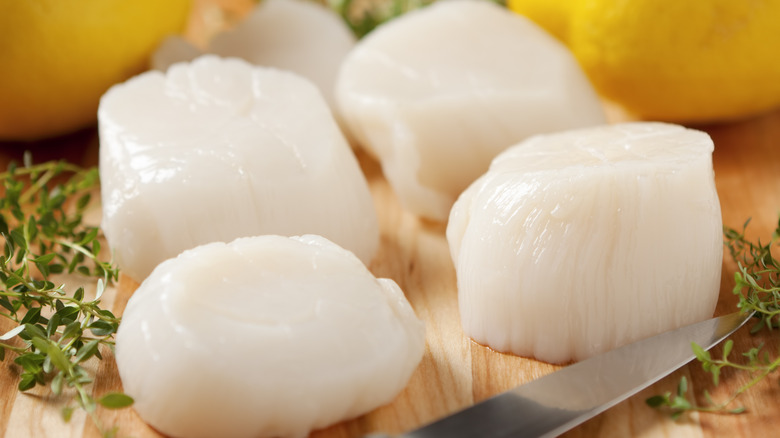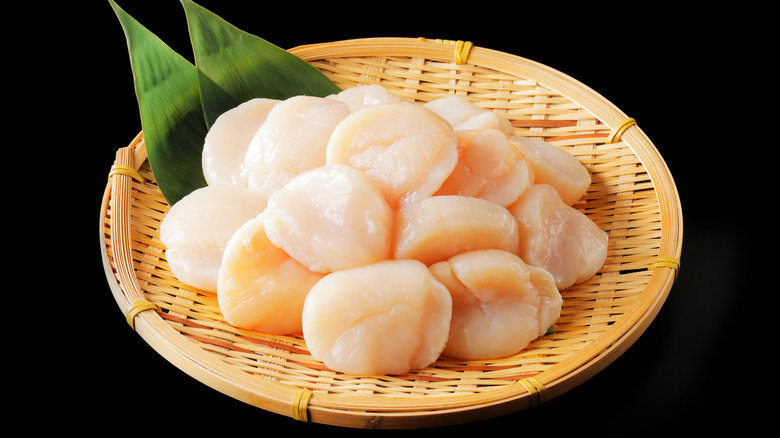How To Tell If Your Scallops Have Gone Bad
When cooking with fresh seafood, it's important to take special caution by inspecting it before use. Some fresh seafood can spoil much quicker compared to things like beef or poultry, and different types of seafood will have different things you need to look out for to ensure it is still safe to eat. When examining scallops, you should evaluate their freshness based on appearance, texture, and smell.
A quality scallop should have a bright, creamy color to it, and it should be evenly colored across the whole scallop and slightly translucent. If you inspect your scallops and notice grayish spots or yellow discoloration, this can be a sign your scallops have begun to go bad. One of the easiest ways to tell if your scallops have spoiled is by doing the smell test. Fresh seafood should not have an offensively strong fishy or sour odor to it. Instead, it should have a slightly sweet smell.
A final way to check the quality of your scallops is by their texture. Your scallops should be firm to the touch. If you touch your scallops and find that they are overly soft and slimy, this can be another indicator your shellfish have gone bad. If your scallops have any of these attributes, it's best to err on the side of caution and discard the shellfish.
How long scallops stay fresh and how to properly store them
If you are buying fresh sea scallops and storing them in your refrigerator, they typically will stay fresh for one to two days. Any longer than two days and you risk bacterial growth and foodborne illnesses. You should immediately put your scallops into refrigeration once you bring them home, as scallops that are left out at room temperature for more than two hours should be discarded. The best way to ensure your scallops stay fresh is to use them within the same day you purchase them.
You don't need to keep scallops submerged in water when storing them, but you should keep them on top of ice. Keeping them in a dry, airtight container or plastic bag resting on ice will suffice just fine. You should also remove any excess moisture before storing them by drying them off with a paper towel or clean cloth. If you don't think you'll be using your scallops within the same day, store them in the coldest part of your fridge to help keep them at the best consistency.
If you aren't planning on using your fresh scallops within the time frame but don't want them to go to waste, you can freeze them. To freeze fresh scallops, ensure they are very dry and then you can put them in a freezer bag or airtight container. Frozen scallops will last for up to two months when stored correctly.

